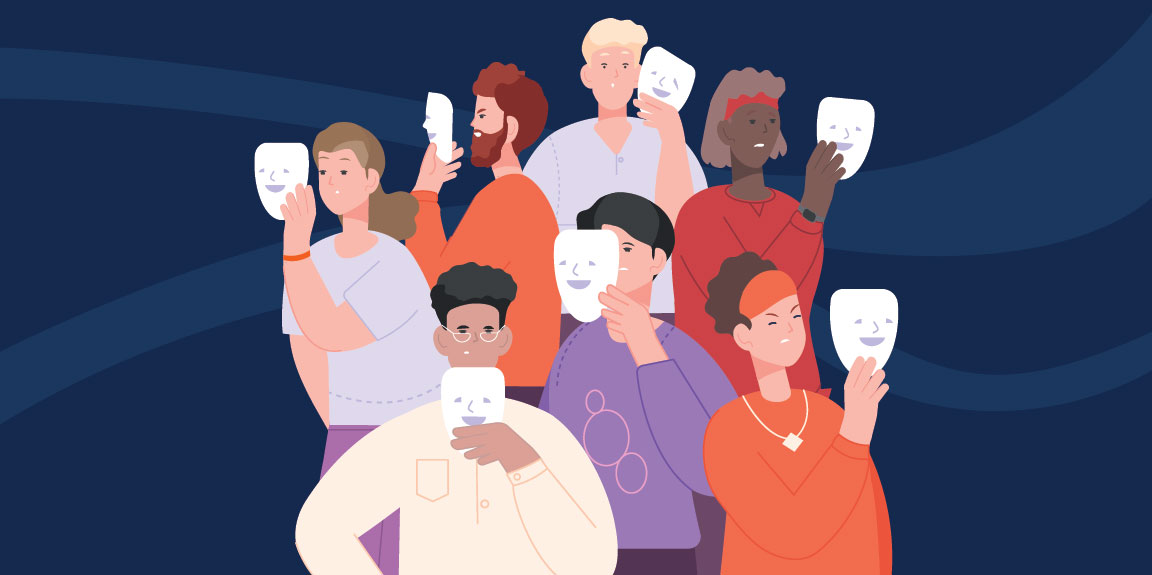Overcoming Self-Doubt: My Journey to a Master’s Degree at Gonzaga University

Anyone else out there immediately assume you can't or shouldn't do something even before you try? Asking for a friend.
Okay, I'm not really asking for a friend. But I would love to know if you immediately create excuses or roadblocks when you want to try something new rather than concentrate on the opportunities?
This happened to me when I decided to apply for a master's program.
Full transparency. I work at Gonzaga University and part of our benefits package includes tuition reimbursement, something we can use toward a bachelor's, master's or doctoral degree. When my time came to decide on whether to pursue a master's degree, I immediately started questioning my ability to earn such a degree.
Struggling with Self-Doubt
I'm a pretty confident person, but once I started investigation Gonzaga's offerings, a little voice inside my head started eating away at my confidence. It wasn't just about the application requirements; it was so much more.
Would I get in? How would I measure up? What did I bring to the table? Were the classes going to be too hard? A lot of this came from childhood messages, such as, "I wasn't the smart one," and my own expectation that everyone else would be better equipped to succeed.
Despite a very successful career in journalism and a career change to marketing, applying to grad school filled me with self-doubt and gave me a case of imposter syndrome.
What is Imposter Syndrome?
Imposter syndrome is the persistent feeling of self-doubt and fear of being exposed as a fraud, despite evident success. It's common and can be paralyzing.
Turning Negative Thoughts Into Positive Actions
So how did I snap myself out of it? I started to play the "what if" game and instead of starting with the negative, I imagined positive outcomes.
- What if I get in?
- What if I excel in my classes?
- What if I love everything I am learning?
That little tweak opened my mind to the positive outcomes of learning new concepts and theories and how I could then use my knowledge throughout my career.
I ended up taking another look at my options and applied and was accepted to Gonzaga's online Master's in Organizational Leadership.
I was still nervous about how I would do in the program, but once I finished my first class, I felt great and ready for the rest of the program.
Practical Tips for Graduate Students
I did learn that as a student who had not been in school for many years, there was a bit of a learning curve.
I needed to relearn how to conduct research, write an academic paper with plenty of citations and increase my reading.
Organization was also key to balancing school, work and my personal life. What worked for me was about 6 to 8 hours of course work during the week with an additional 3 to 4 hours one weekend day. This did vary depending on what papers or projects were due.
Final Thoughts
I met some wonderful people, received valuable guidance from faculty and learned a lot while earning my master's degree. I also gained confidence and am so happy I did not let my self-doubt stop me.
If you're thinking about applying for any degree or certification: don't hold yourself back. Don't doubt yourself. You can do it.
Bottom line, it's all a part of a wonderful learning process. And let's face it, you can do anything for 8 weeks: eat better, exercise, earn a master's degree; just put aside your fears and go for it.
Gonzaga offers a variety of graduate degrees both online and on campus.
I encourage you to explore your options and if you have any questions at all, we have a team of Admissions Specialists who can help you find the program that is right for you and guide you through the application process.
Julie Krallman is the Associate Director of Marketing for Gonzaga's Graduate Programs.
